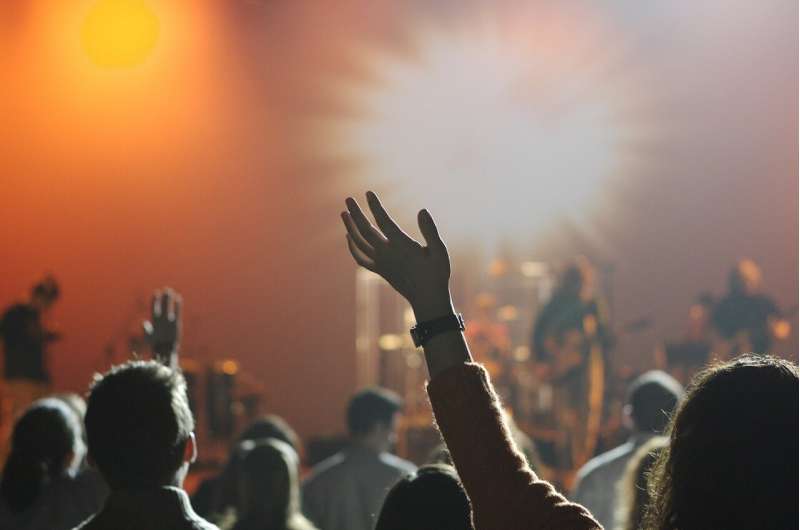
Recently we have seen the launch of artificial intelligence programs such as SOUNDRAW and Loudly that can create musical compositions in the style of almost any artist.
We're also seeing big stars use AI in their own work, including to replicate others' voices. Drake, for instance, landed in hot water in April after he released a diss track that used AI to mimic the voice of late rapper Tupac Shakur. And with the new ChatGPT model, GPT-4o, things are set to reach a whole new level. Fast.
So is human-made music doomed?
While it's true AI will likely disrupt the music industry and even transform how we engage with music, there are some good reasons to suggest human music-making isn't going anywhere.
Technology and music have a long history
One could argue AI is essentially a tool aimed at making our lives easier. Humans been been crafting such tools for a long time, both in music and nearly every other domain.
We've been using technology to play music since the invention of the gramophone. And arguments about human musicians versus machines are at least as old as the self-playing piano, which came into use in the early 20th century.
More recently, sampling, DJ-ing, autotune technology and AI-based mastering and production software have continued to fan debates over artistic originality.
But the new AI developments are different. Anyone can create a new track in any existing genre, with mininal effort. They can add instruments, change the music's "vibe" and even choose a virtual singer to sing their lyrics.
Given the industry's longstanding exploitation of artists—particularly with the rise of streaming (and Spotify's chief executive claiming music is almost free to create)—its easy to see why the latest developments in AI are frightening some musicians.
Music is a very human thing
At the same time, these developments offer an opportunity to reflect on why people make music in the first place. We have long used music to tell our stories, to express ourselves and our humanity. These stories teach us, heal us, energize us and help shape our identities.
Can AI music do this? Maybe. But it's unlikely to be able to speak to the human experience in the same way a human can—partly because it doesn't understand it the way we do.
It's also unlikely to be able to create new works outside of existing musical paradigms, as it relies on algorithms taking from existing material. So we'll likely still need our imaginations to create new musical ideas.
It also helps to note that music being controlled by "algorithms" actually isn't a new concept. Mainstream pop artists have long had their music written for them by industry "hit makers" who use specific formulas.
It's usually the musicians on the fringes, rather than the more commercial artists and products, who retain connection to music as a cultural practice and therefore push the development of new styles.
Perhaps the bigger question isn't how musicians will compete against AI, but how we as a society should value the musicians who help create our musical worlds, and our very cultures.
Is this a task we're happy to hand over to AI to save money? Or should such an important role be supported with job security and a fair wage, as is afforded to doctors, dentists, politicians and teachers?
This article is republished from The Conversation under a Creative Commons license. Read the original article.![]()
Citation: No, AI doesn't mean human-made music is doomed (2024, June 12) retrieved 12 June 2024 from https://techxplore.com/news/2024-06-ai-doesnt-human-music-doomed.html
This document is subject to copyright. Apart from any fair dealing for the purpose of private study or research, no part may be reproduced without the written permission. The content is provided for information purposes only.
